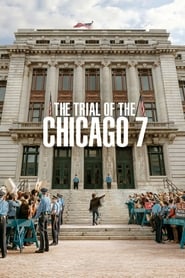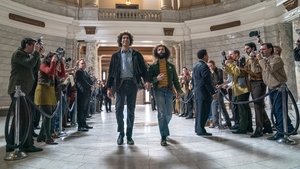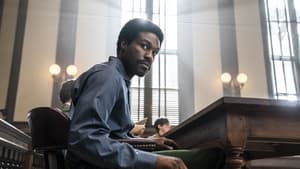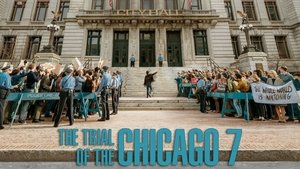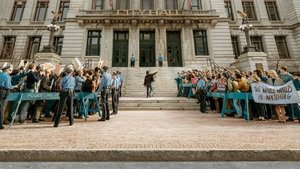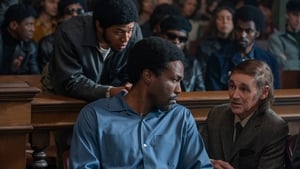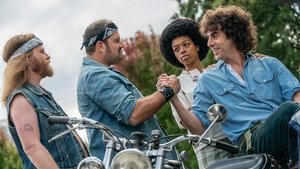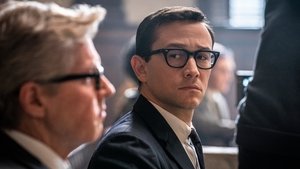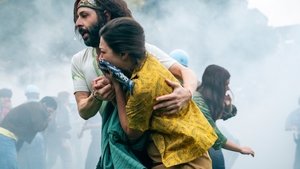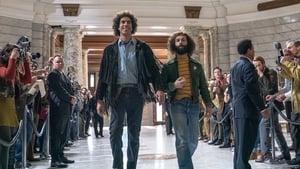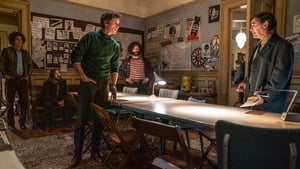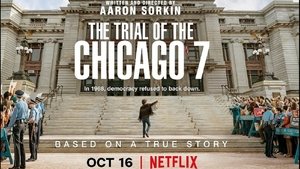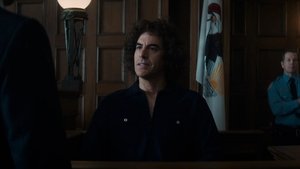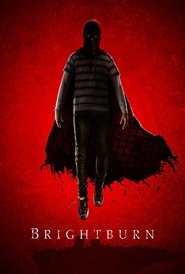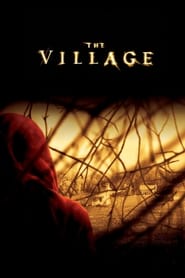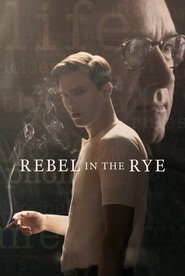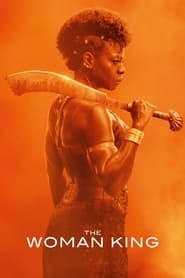History has a way of repeating itself. And with his second directorial effort, Academy Award Winning screenwriter, Aaron Sorkin (The Social Network), transports us back in time to 1968, during the pinnacle of Vietnam protests where demonstrators and law enforcement clashed in an eruption of violence that mirrors the recorded imagery of present-day America. People were divided, political animosity had reached a boiling point, and a pivotal election was on the horizon. Ultimately, it was the result of that bitter 1968 election which set the stage for Sorkin’s latest film, The Trial of the Chicago 7, one that he demanded to be released by its distributor prior to election day 2020, with the hopes that maybe this time around history won’t repeat itself.
The Chicago 7 opens with a montage of footage regarding the assassinations of both Martin Luther King Jr. and Robert Kennedy over a mere two-month span. Advocates for peace were being buried with bullet holes in their head, leaving anti-war groups with little hope that a non-violent approach would enact change and end the bloodshed abroad. Protest leaders like Tom Hayden (Eddie Redmayne), Abbie Hoffman (Sacha Baron Cohen), Jerry Rubin (Jeremy Strong) and David Dellinger (John Carroll Lynch) attempted to obtain permits for peaceful protests in Lincoln Park, but were denied by the city’s mayor. After many days of protesting that included multiple violent encounters between law enforcement and protesters, disarray surrounding the Democratic party resulted in a loss of the election. Five months later, after Nixon took office as President of the United States, the surprising arrest of these protest organizers on federal charges of crossing state lines to incite violence sparked a controversial, months-long trial that placed the usage of America’s judicial system as a tool for political warfare under the public microscope.
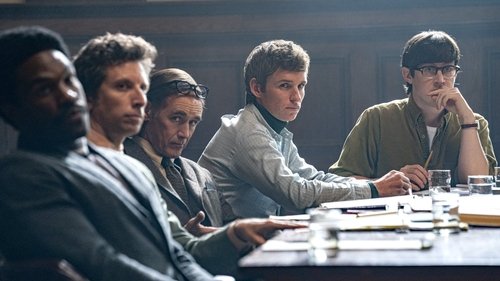
The true story behind this iconic moment in United States history is unavoidably complex and detailed. Yet, the living wordsmith Aaron Sorkin delivers such a sleek and crisp script that unveils key components of these event in a purposeful and periodic non-chronological manner. Sorkin wastes very little time placing the audience inside the courtroom, where a majority of the film occurs and a setting that is a true comfort zone for the writer-director. And while The Chicago 7 never quite reaches the same heights as Sorkin’s legendary 1992 screenplay for A Few Good Men, there is still plenty to appreciate in this newest work. Humor and heaviness do a delicate dance between the pages of this script. The silliness of Sacha Baron Cohen’s and Jeremy Strong’s hippie figureheads make for exceptional comic relief when it’s so desperately needed. However, their hilarious quips and antics clearly take the backseat to a more serious and ominous tone that addresses themes of racism, politicizing our criminal justice system and violence at the hands of law enforcement.
The Chicago 7 is not only a wonderfully-penned screenplay, Sorkin also steps-up his game behind the camera as the direction here represents a stark and noticeable improvement over his debut film, Molly’s Game. Furthermore, it would be a grave injustice to avoid mentioning this star-studded cast and the outstanding onscreen performances given by this ensemble. Outside of the stellar and obvious lead performances from Redmayne, Strong and Sacha Baron Cohen, Oscar Winner Mark Rylance (Bridge of Spies) brings to life such a noble and naïve character as defense attorney William Kunstler, and Frank Langella will crawl under your skin as Judge Julius Hoffman, an unfair ruler of law. These performances, in conjunction with Sorkin’s writing, create a handful of unforgettable onscreen moments. Yet, the constant busyness of having to provide an abundance of details occasionally leaves the film feeling flat in between these masterful scenes. The Chicago 7 may not be Sorkin at his best, but Sorkin not at his best is still extremely worthwhile.
-
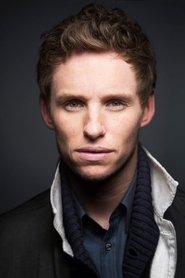 NameEddie RedmayneCharacterTom Hayden
NameEddie RedmayneCharacterTom Hayden -
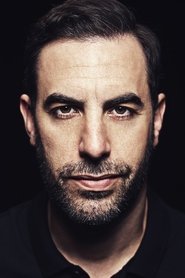 NameSacha Baron CohenCharacterAbbie Hoffman
NameSacha Baron CohenCharacterAbbie Hoffman -
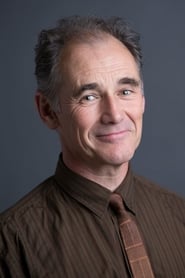 NameMark RylanceCharacterWilliam Kunstler
NameMark RylanceCharacterWilliam Kunstler -
 NameJoseph Gordon-LevittCharacterRichard Schultz
NameJoseph Gordon-LevittCharacterRichard Schultz -
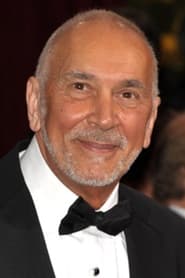 NameFrank LangellaCharacterJudge Julius Hoffman
NameFrank LangellaCharacterJudge Julius Hoffman -
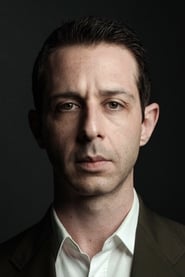 NameJeremy StrongCharacterJerry Rubin
NameJeremy StrongCharacterJerry Rubin -
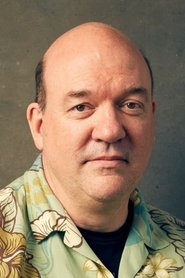 NameJohn Carroll LynchCharacterDavid Dellinger
NameJohn Carroll LynchCharacterDavid Dellinger -
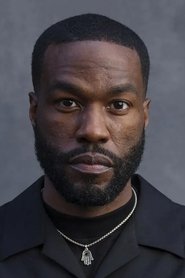 NameYahya Abdul-Mateen IICharacterBobby Seale
NameYahya Abdul-Mateen IICharacterBobby Seale -
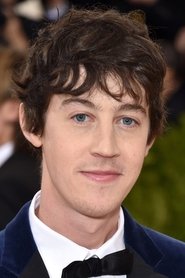 NameAlex SharpCharacterRennie Davis
NameAlex SharpCharacterRennie Davis -
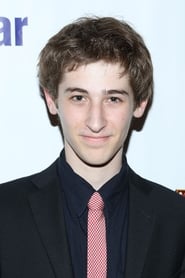 NameNoah RobbinsCharacterLee Weiner
NameNoah RobbinsCharacterLee Weiner -
 NameDanny FlahertyCharacterJohn Froines
NameDanny FlahertyCharacterJohn Froines -
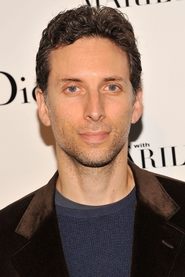 NameBen ShenkmanCharacterLeonard Weinglass
NameBen ShenkmanCharacterLeonard Weinglass -
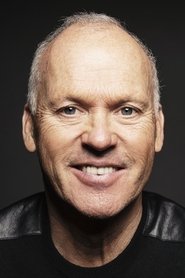 NameMichael KeatonCharacterRamsey Clark
NameMichael KeatonCharacterRamsey Clark -
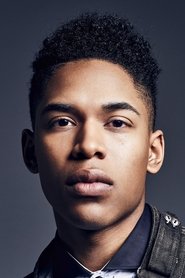 NameKelvin Harrison, Jr.CharacterFred Hampton
NameKelvin Harrison, Jr.CharacterFred Hampton -
 NameCaitlin FitzGeraldCharacterAgent Daphne O'Connor
NameCaitlin FitzGeraldCharacterAgent Daphne O'Connor -
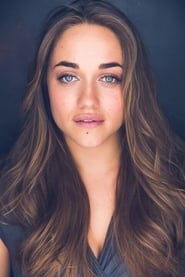 NameAlice KremelbergCharacterBernadine
NameAlice KremelbergCharacterBernadine -
 NameJ.C. MacKenzieCharacterThomas Foran
NameJ.C. MacKenzieCharacterThomas Foran -
 NameJohn DomanCharacterJohn Mitchell
NameJohn DomanCharacterJohn Mitchell -
 NameWayne DuvallCharacterDetective Deluca
NameWayne DuvallCharacterDetective Deluca -
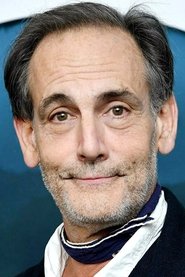 NameDamian YoungCharacterHoward Ackerman
NameDamian YoungCharacterHoward Ackerman -
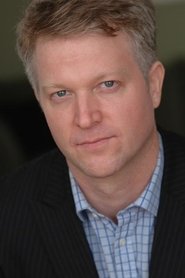 NameC.J. WilsonCharacterSergeant Scott Scibelli
NameC.J. WilsonCharacterSergeant Scott Scibelli -
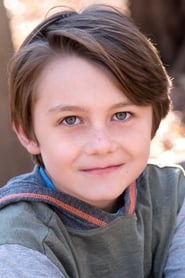 NameBrady JennessCharacterDavid Dellinger's Son
NameBrady JennessCharacterDavid Dellinger's Son -
 NameMeghan RaffertyCharacterMrs. Dellinger
NameMeghan RaffertyCharacterMrs. Dellinger -
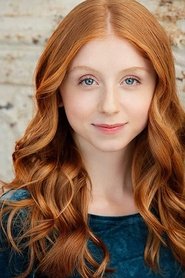 NameJuliette AngeloCharacterJuror 6
NameJuliette AngeloCharacterJuror 6 -
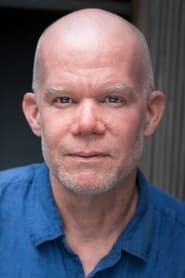 NameBrendan BurkeCharacterBailiff
NameBrendan BurkeCharacterBailiff -
 NameTah von AllmenCharacterMrs. Winter
NameTah von AllmenCharacterMrs. Winter -
 NameAlan MetoskieCharacterAllen Ginsberg
NameAlan MetoskieCharacterAllen Ginsberg -
 NameJohn GawlikCharacterPoliceman That Arrests Jerry
NameJohn GawlikCharacterPoliceman That Arrests Jerry -
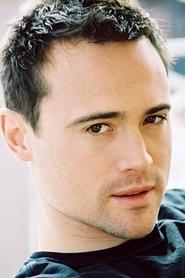 NameKevin O'DonnellCharacterBar Patron 1
NameKevin O'DonnellCharacterBar Patron 1 -
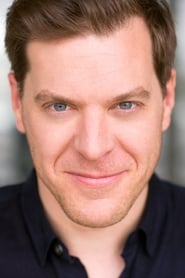 NameGavin HaagCharacterBar Patron 2
NameGavin HaagCharacterBar Patron 2 -
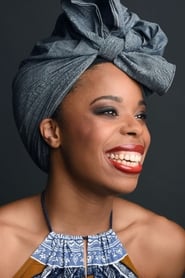 NameTiffany Denise HobbsCharacterSondra
NameTiffany Denise HobbsCharacterSondra -
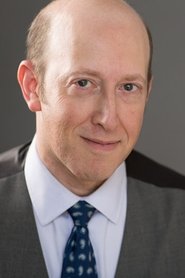 NameSteve RoutmanCharacterDavid Stahl
NameSteve RoutmanCharacterDavid Stahl -
 NameMadison NicholsCharacterDemonstrator
NameMadison NicholsCharacterDemonstrator -
 NameJohn F. CarpenterCharacterDetective Bell
NameJohn F. CarpenterCharacterDetective Bell -
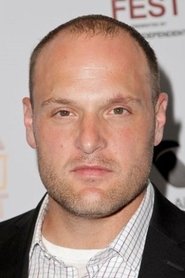 NameLarry MitchellCharacterDetective Frapoly
NameLarry MitchellCharacterDetective Frapoly -
 NameMike GeraghtyCharacterDetective Sam McGiven
NameMike GeraghtyCharacterDetective Sam McGiven -
 NameMike BrunliebCharacterEddie
NameMike BrunliebCharacterEddie -
 NameJames PravasilisCharacterEgg Throwing Crowd Member
NameJames PravasilisCharacterEgg Throwing Crowd Member -
 NameVic KuligoskiCharacterFrat Boy 1
NameVic KuligoskiCharacterFrat Boy 1 -
 NameBrandon FierroCharacterFrat Boy 2
NameBrandon FierroCharacterFrat Boy 2 -
 NameCalvin Ticknor-SwansonCharacterFrat Boy 3
NameCalvin Ticknor-SwansonCharacterFrat Boy 3 -
 NameGabrielle PerreaCharacterGirl in Beret
NameGabrielle PerreaCharacterGirl in Beret -
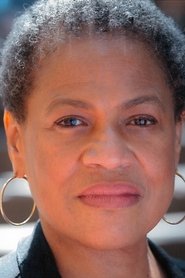 NameMichelle HurstCharacterHousekeeper Jane
NameMichelle HurstCharacterHousekeeper Jane -
 NameTony LawryCharacterMan
NameTony LawryCharacterMan -
 NameKathleen GarrettCharacterMitchell's Secretary
NameKathleen GarrettCharacterMitchell's Secretary -
 NameMatt LeFevourCharacterOfficer 1
NameMatt LeFevourCharacterOfficer 1 -
 NameChristian LitkeCharacterOfficer 2
NameChristian LitkeCharacterOfficer 2 -
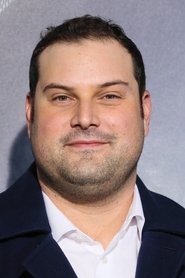 NameMax AdlerCharacterOfficer Wojohowski
NameMax AdlerCharacterOfficer Wojohowski -
 NameMichael BassettCharacterOfficer Quinn
NameMichael BassettCharacterOfficer Quinn -
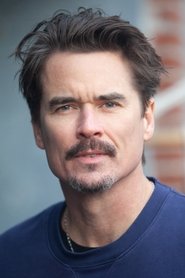 NameShawn ParsonsCharacterPoliceman in Haymarket
NameShawn ParsonsCharacterPoliceman in Haymarket -
 NameJulian HesterCharacterPoliceman on Bullhorn
NameJulian HesterCharacterPoliceman on Bullhorn -
 NameJohn QuiltyCharacterReporter Jack
NameJohn QuiltyCharacterReporter Jack -
 NameKate MillerCharacterReporter Majorie
NameKate MillerCharacterReporter Majorie -
 NameEdward FletcherCharacterReporter Sy
NameEdward FletcherCharacterReporter Sy -
 NameBlair LewinCharacterWoman in Tavern
NameBlair LewinCharacterWoman in Tavern -
 NameJessica WoodCharacterBartender
NameJessica WoodCharacterBartender -
 NameSteven KomitoCharacterMarshal
NameSteven KomitoCharacterMarshal -
 NameMarco LamaCharacterSomeone in the Crowd
NameMarco LamaCharacterSomeone in the Crowd -
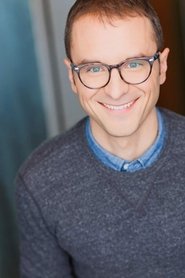 NameBen KassCharacterReporter 7
NameBen KassCharacterReporter 7 -
 NameGabriel FrankenCharacterReporter 8
NameGabriel FrankenCharacterReporter 8 -
 NameEd FlynnCharacterReporter 9
NameEd FlynnCharacterReporter 9 -
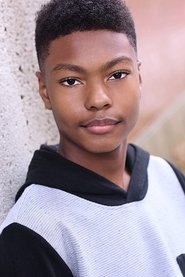 NameAlex HendersonCharacterYoung Man
NameAlex HendersonCharacterYoung Man -
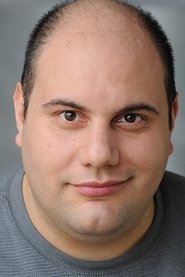 NameDavid FierroCharacterBailiff 2
NameDavid FierroCharacterBailiff 2 -
 NameSam Nelson HarrisCharacterBand Lead Singer
NameSam Nelson HarrisCharacterBand Lead Singer -
 NameMarlee MendelsonCharacterBand Member
NameMarlee MendelsonCharacterBand Member -
 NameHana ChewCharacterBand Member
NameHana ChewCharacterBand Member -
 NameAshley TrumboCharacterBand Member
NameAshley TrumboCharacterBand Member -
 NameAllison TrumboCharacterBand Member
NameAllison TrumboCharacterBand Member -
 NameShane SkidmoreCharacterBand Member
NameShane SkidmoreCharacterBand Member -
 NameJeffrey YonkusCharacterBand Member
NameJeffrey YonkusCharacterBand Member -
 NameMaria JacobsonCharacterBand Member
NameMaria JacobsonCharacterBand Member -
 NameBrendan BrownCharacterBand Member
NameBrendan BrownCharacterBand Member -
 NameDan MacDonaldCharacterBand Member
NameDan MacDonaldCharacterBand Member -
 NameKeeley MorrisCharacterFemale Protester
NameKeeley MorrisCharacterFemale Protester -
 NameThomas John GallagherCharacterRadio Cop
NameThomas John GallagherCharacterRadio Cop -
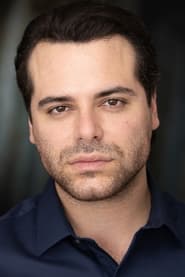 NameMichael A. DeanCharacterCarl Oglesby
NameMichael A. DeanCharacterCarl Oglesby -
 NameElizabeth HolderCharacterJuror 11
NameElizabeth HolderCharacterJuror 11 -
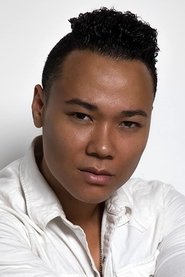 NameLex ElleCharacterRiot Cop (uncredited)
NameLex ElleCharacterRiot Cop (uncredited) -
 NameGillian CooperCharacterCourtroom Protester
NameGillian CooperCharacterCourtroom Protester -
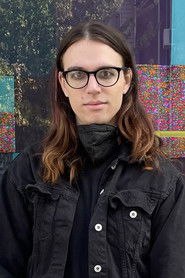 NameEden VernierCharacterCourtroom Gallery (uncredited)
NameEden VernierCharacterCourtroom Gallery (uncredited)
-
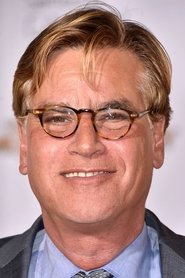 NameAaron SorkinJobWriter
NameAaron SorkinJobWriter -
 NameAaron SorkinJobDirector
NameAaron SorkinJobDirector -
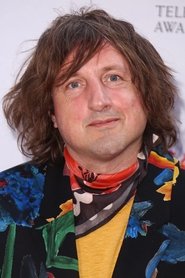 NameDaniel PembertonJobOriginal Music Composer
NameDaniel PembertonJobOriginal Music Composer -
 NameDaniel PembertonJobMain Title Theme Composer
NameDaniel PembertonJobMain Title Theme Composer -
 NameKathryn E. SmithJobCostume Supervisor
NameKathryn E. SmithJobCostume Supervisor -
 NameBrendan K. RussellJobSecond Assistant "B" Camera
NameBrendan K. RussellJobSecond Assistant "B" Camera -
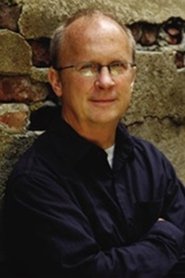 NameJoseph P. ReidyJobFirst Assistant Director
NameJoseph P. ReidyJobFirst Assistant Director -
 NameMarc LoforteJobSecond Assistant "A" Camera
NameMarc LoforteJobSecond Assistant "A" Camera -
 NameMichael FuchsJobSteadicam Operator
NameMichael FuchsJobSteadicam Operator -
 NameEthan BorsukJobFirst Assistant "B" Camera
NameEthan BorsukJobFirst Assistant "B" Camera -
 NameCharles LibinJob"C" Camera Operator
NameCharles LibinJob"C" Camera Operator -
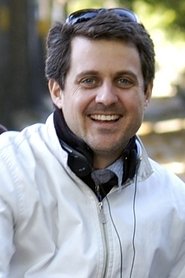 NameJonathan ShoemakerJobUnit Production Manager
NameJonathan ShoemakerJobUnit Production Manager -
 NameShane B. ScottJobScript Supervisor
NameShane B. ScottJobScript Supervisor -
 NameMichael FuchsJob"A" Camera Operator
NameMichael FuchsJob"A" Camera Operator -
 NameEve StrickmanJobSecond Assistant "A" Camera
NameEve StrickmanJobSecond Assistant "A" Camera -
 NameAlan PierceJob"B" Camera Operator
NameAlan PierceJob"B" Camera Operator -
 NameA. Anthony CappelloJobFirst Assistant "C" Camera
NameA. Anthony CappelloJobFirst Assistant "C" Camera -
 NameCameron SizemoreJobSecond Assistant "C" Camera
NameCameron SizemoreJobSecond Assistant "C" Camera -
 NameRachel JarosJobSecond Assistant Director
NameRachel JarosJobSecond Assistant Director -
 NameToshiro YamaguchiJob"C" Camera Operator
NameToshiro YamaguchiJob"C" Camera Operator -
 NameStuart M. BesserJobUnit Production Manager
NameStuart M. BesserJobUnit Production Manager -
 NameCraig PressgroveJobFirst Assistant "A" Camera
NameCraig PressgroveJobFirst Assistant "A" Camera -
 NameJulian SlaterJobSound Re-Recording Mixer
NameJulian SlaterJobSound Re-Recording Mixer -
 NameHerb StathesJobIn Memory Of
NameHerb StathesJobIn Memory Of -
 NameMichael BabcockJobSound Re-Recording Mixer
NameMichael BabcockJobSound Re-Recording Mixer -
 NameRenée TondelliJobSupervising Sound Editor
NameRenée TondelliJobSupervising Sound Editor -
 NameDan KenyonJobSound Designer
NameDan KenyonJobSound Designer -
 NameNick FranconeJobSupervising Art Director
NameNick FranconeJobSupervising Art Director -
 NameJulia HeymansJobArt Direction
NameJulia HeymansJobArt Direction -
 NameJamie RushJobSet Costumer
NameJamie RushJobSet Costumer -
 NameGlenn AllenJobVisual Effects Producer
NameGlenn AllenJobVisual Effects Producer -
 NameEran DinurJobVisual Effects Supervisor
NameEran DinurJobVisual Effects Supervisor -
 NameErnesto SoloJobArt Direction
NameErnesto SoloJobArt Direction -
 NameRay SantoleriJobMakeup Artist
NameRay SantoleriJobMakeup Artist -
 NameShoko KambaraJobAssistant Art Director
NameShoko KambaraJobAssistant Art Director -
 NamePhedon PapamichaelJobDirector of Photography
NamePhedon PapamichaelJobDirector of Photography -
 NameStephen M. KelleyJobMakeup Artist
NameStephen M. KelleyJobMakeup Artist -
 NameCarla StileJobSet Dresser
NameCarla StileJobSet Dresser -
 NameRichard FriedlanderJobVisual Effects Producer
NameRichard FriedlanderJobVisual Effects Producer -
 NameNancy KirhofferJobPost Production Producer
NameNancy KirhofferJobPost Production Producer -
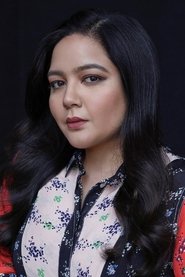 NameShivani RawatJobExecutive Producer
NameShivani RawatJobExecutive Producer -
 NameThorsten SchumacherJobExecutive Producer
NameThorsten SchumacherJobExecutive Producer -
 NameGail BenefielJobCo-Executive Producer
NameGail BenefielJobCo-Executive Producer -
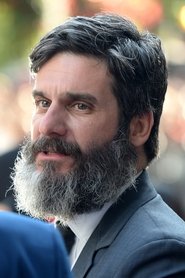 NameAnthony KatagasJobExecutive Producer
NameAnthony KatagasJobExecutive Producer -
 NameLauren LohmanJobExecutive Producer
NameLauren LohmanJobExecutive Producer -
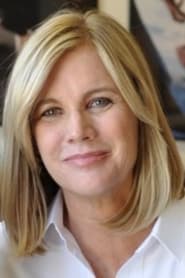 NameLaurie MacDonaldJobExecutive Producer
NameLaurie MacDonaldJobExecutive Producer -
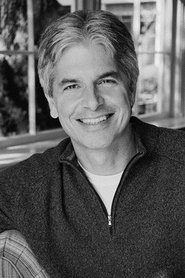 NameWalter F. ParkesJobExecutive Producer
NameWalter F. ParkesJobExecutive Producer -
 NameJoseph P. ReidyJobCo-Producer
NameJoseph P. ReidyJobCo-Producer -
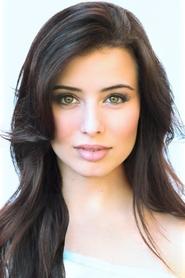 NameNicole Alexandra ShipleyJobExecutive Producer
NameNicole Alexandra ShipleyJobExecutive Producer -
 NameMax AdlerJobCo-Executive Producer
NameMax AdlerJobCo-Executive Producer -
 NameCharles MillerJobCo-Producer
NameCharles MillerJobCo-Producer -
 NameMarc ButanJobExecutive Producer
NameMarc ButanJobExecutive Producer -
 NameMisook DoolittleJobExecutive Producer
NameMisook DoolittleJobExecutive Producer -
 NameMonica LevinsonJobExecutive Producer
NameMonica LevinsonJobExecutive Producer -
 NameJan McAdooJobExecutive Producer
NameJan McAdooJobExecutive Producer -
 NameBuddy PatrickJobExecutive Producer
NameBuddy PatrickJobExecutive Producer -
 NameAndrew C. RobinsonJobExecutive Producer
NameAndrew C. RobinsonJobExecutive Producer -
 NameRyan Donnell SmithJobExecutive Producer
NameRyan Donnell SmithJobExecutive Producer -
 NameCary AndersonJobCo-Executive Producer
NameCary AndersonJobCo-Executive Producer -
 NameMickey Gooch Jr.JobExecutive Producer
NameMickey Gooch Jr.JobExecutive Producer -
 NameKristie Macosko KriegerJobExecutive Producer
NameKristie Macosko KriegerJobExecutive Producer -
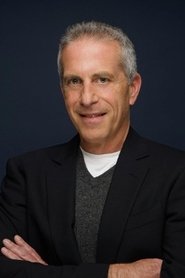 NameMarc PlattJobProducer
NameMarc PlattJobProducer -
 NameJames RodenhouseJobExecutive Producer
NameJames RodenhouseJobExecutive Producer -
 NameEmily Hunter SalvesonJobCo-Executive Producer
NameEmily Hunter SalvesonJobCo-Executive Producer -
 NameSacha Baron CohenJobAssociate Producer
NameSacha Baron CohenJobAssociate Producer -
 NameJonathan BenefielJobCo-Executive Producer
NameJonathan BenefielJobCo-Executive Producer -
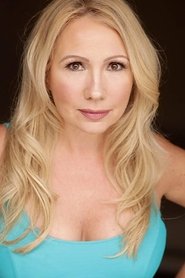 NameStephanie GarvinJobCo-Executive Producer
NameStephanie GarvinJobCo-Executive Producer -
 NameJ. Todd HarrisJobCo-Executive Producer
NameJ. Todd HarrisJobCo-Executive Producer -
 NameSteve MatzkinJobExecutive Producer
NameSteve MatzkinJobExecutive Producer -
 NameKristina RiveraJobCo-Executive Producer
NameKristina RiveraJobCo-Executive Producer -
 NameStuart M. BesserJobProducer
NameStuart M. BesserJobProducer -
 NameMaurice FadidaJobExecutive Producer
NameMaurice FadidaJobExecutive Producer -
 NameEvan MetropoulosJobExecutive Producer
NameEvan MetropoulosJobExecutive Producer -
 NameDebra TaweelJobCo-Executive Producer
NameDebra TaweelJobCo-Executive Producer -
 NameDru DavisJobExecutive Producer
NameDru DavisJobExecutive Producer -
 NameMatt JacksonJobProducer
NameMatt JacksonJobProducer -
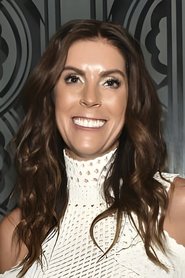 NameSarah Schroeder-MatzkinJobExecutive Producer
NameSarah Schroeder-MatzkinJobExecutive Producer -
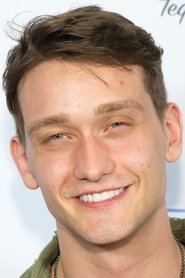 NameCody SaintgnueJobExecutive Producer
NameCody SaintgnueJobExecutive Producer -
 NameNia VaziraniJobExecutive Producer
NameNia VaziraniJobExecutive Producer -
 NameSlava VladimirovJobExecutive Producer
NameSlava VladimirovJobExecutive Producer -
 NameTyler ThompsonJobProducer
NameTyler ThompsonJobProducer -
 NameJared UnderwoodJobExecutive Producer
NameJared UnderwoodJobExecutive Producer -
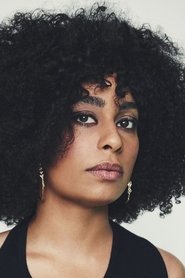 NameCelesteJobTheme Song Performance
NameCelesteJobTheme Song Performance -
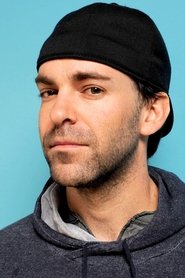 NameVincent GrashawJobCo-Executive Producer
NameVincent GrashawJobCo-Executive Producer -
 NameAndrew DahreddineJobCasting Assistant
NameAndrew DahreddineJobCasting Assistant -
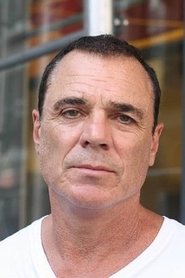 NameJohn CenatiempoJobStunts
NameJohn CenatiempoJobStunts -
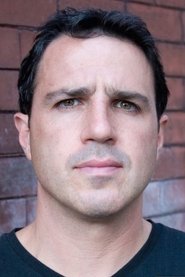 NameChris CenatiempoJobStunts
NameChris CenatiempoJobStunts -
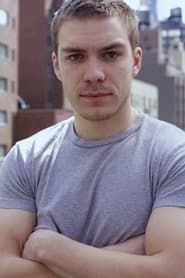 NameKevin Michael MurphyJobStunts
NameKevin Michael MurphyJobStunts -
 NameNathan J. Busch IIJobHair Department Head
NameNathan J. Busch IIJobHair Department Head -
 NameShane ValentinoJobProduction Design
NameShane ValentinoJobProduction Design -
 NameLouise McCarthyJobMakeup Department Head
NameLouise McCarthyJobMakeup Department Head -
 NameAlan BaumgartenJobEditor
NameAlan BaumgartenJobEditor -
 NameAndrew BasemanJobSet Decoration
NameAndrew BasemanJobSet Decoration -
 NameSusan LyallJobCostume Designer
NameSusan LyallJobCostume Designer -
 NameBrian LuceJobPolice Consultant
NameBrian LuceJobPolice Consultant -
 NameAndrew HudsonJobSet Production Assistant
NameAndrew HudsonJobSet Production Assistant -
 NamePatrick DunhamJobStunts
NamePatrick DunhamJobStunts -
 NameJustin BischoffJobSecond Assistant Director
NameJustin BischoffJobSecond Assistant Director -
 NameDaniel PembertonJobLyricist
NameDaniel PembertonJobLyricist -
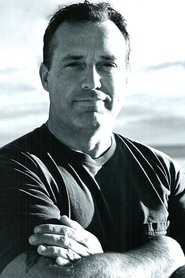 NameChris BarnesJobStunts
NameChris BarnesJobStunts -
 NameCelesteJobLyricist
NameCelesteJobLyricist


